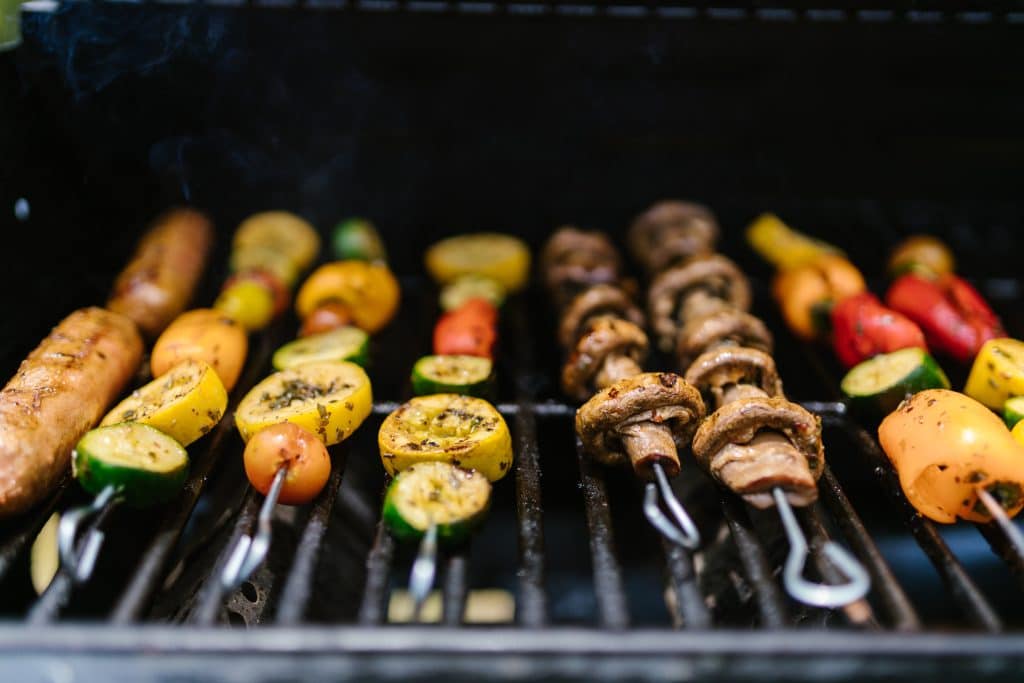Normalizing novel foods at favorite summer pastimes
It’s official – BBQ season is upon us. The popular foodie activity holds a firm place in most consumers’ hearts, with the number of BBQs held around Europe rising sharply in recent years. It’s also yet another opportunity to grow plant-based sales, and help the planet.
Indeed, UK citizens have taken the top spot for the most BBQs in Europe – hosting a staggering 165-million BBQs in 2021, closely pushing Germany into second place.1 Market worth has also skyrocketed, with the overall BBQ and alfresco-dining sector in Europe valued at just over £2.2 billion in 2021, up from £150 million in 1997.
Along with the UK and Germany, France, Italy, and Poland are leading the BBQ market in Western Europe, largely due to the increasing trend of spending time with family and friends for outdoor BBQ activities.2
Plant-based BBQ foods are gaining popularity

So, why does this matter to players in the plant-based category? Simply put, it’s because plant-based meat products are gaining popularity with European consumers and are fast becoming a bigger part of BBQ spreads.
According to a recent pan-European survey led by ProVeg International, 40% of all consumers in Europe now identify as either flexitarian, vegetarian, pescatarian, or vegan. And with 86% of all plant-based purchases being made by flexitarians, it stands to reason that many of these purchases make their way onto our outdoor grills. Indeed, an estimated 29% of all BBQs in 2021 contained a primarily vegetarian or vegan base.3
As more consumers adopt flexitarian diets, we are seeing a shift in BBQ-food-purchasing behaviors in favor of more plant-based versions of favorite BBQ-related products. Certainly, in the last two years, the meat-free sector has almost doubled in value (49%), with the dairy-free market close behind.4 By 2025, it is estimated that meat and dairy alternatives will be worth 7.5-billion euros in Europe, up from 4.4-billion euros in 2019.5
BBQ season can aid with the normalization of plant-based foods

More importantly, BBQs present the ideal opportunity for mainstream consumers to see, interact with, and sample ‘novel’ foods that – compared to other plant-based foods in other eating settings – are actually very familiar to those they know (like burgers!). With consumers upping purchases of BBQ products including patties, sausages, kebabs, and cheese during BBQ season, brands can offer like-for-like plant-based products which offer similar and uncompromising sensory experiences.
If you are to reach beyond your already-engaged veggie and flexitarian consumer groups towards omnivorous consumers and leverage the growth potential of the plant-based market, then making plant-based foods appear ‘normal’ and not ‘just for vegans’ will be essential.
Plant-based foods for the planet
As consumers become aware of the connection between diet and climate, BBQ season can also be used as an opportunity to provide people with the foods that can help them to reduce their impact on the planet. Make planet-saving foods mainstream – not only to grow your profits, but to protect the environment and meet your business’s sustainability targets, too.
Increasing plant-based product availability and visibility in the lead-up to BBQ season will be pivotal to normalization and uptake, while product merchandising techniques and the location of products in retail settings will also be vital in this. ProVeg recommends utilizing an integrated-segregated approach for the location of plant-based meat products.
Don’t miss out!

As more consumers take on flexitarian dietary habits, this normalization effect will continue to strengthen and expand beyond BBQs into other food settings.
Consequently, BBQ season should be incorporated into your strategy to attract consumers who might not usually consume plant-based foods, expand your target audience, and maximize sales of your products.
Key takeaways

- BBQ season presents the perfect opportunity for mainstream consumers to interact with and taste ‘novel’ foods that are familiar to foods they know.
- Brands should offer plant-based BBQ products that are similar to animal-based BBQ products, with like-for-like sensory experiences.
- Retailers should increase plant-based product availability and visibility in the lead-up to BBQ season, focus efforts on product merchandising, and utilize an integrated-segregated approach for the location of plant-based meat products.
- Brands should incorporate BBQ season into their strategy to normalize plant-based foods to maximize sales, and to enable consumers to ‘do their bit’ for the planet.
ProVeg Tips
If you’ve not yet delved into the plant-based meat sector, now is the time to do so. ProVeg can help. Get in touch with us at [email protected] to learn what it takes to create the perfect meat-free product and how best to market it to consumers during BBQ season and beyond.
In the next article of this series, you will learn: How to produce uncompromisable plant-based products for BBQ season.
References
- Top 20 BBQ Facts, (2022). 26th National BBQ Week. Available at: https://nationalbbqweek.co.uk/bbq-facts/top-20-bbq-facts. Accessed 2022-11-07.
- Europe BBQ Grill Market Overview, (2021). All The Research. Available at: https://www.alltheresearch.com/report/146/barbeque-grill-market. Accessed 2022-11-07.
- Top 20 BBQ Facts, (2022). 26th National BBQ Week. Available at: https://nationalbbqweek.co.uk/bbq-facts/top-20-bbq-facts. Accessed 2022-11-07.
- Smart Protein Project (2021): What consumers want: A survey on European consumer attitudes towards plant-based foods. Country specific insights. European Union’s Horizon 2020 research and innovation program (No 862957). Available at: https://smartproteinproject.eu/consumer-attitudes-plant-based-food-report/. Accessed 2022-10-18
- Plant-Based Meat Market Worth, (2020). Cision PR Newswire. Available at: https://www.prnewswire.com/news-releases/plant-based-meat-market-worth-8-3-billion-by-2025–exclusive-report-by-marketsandmarkets-301188146.html. Accessed 2022-10-31.



